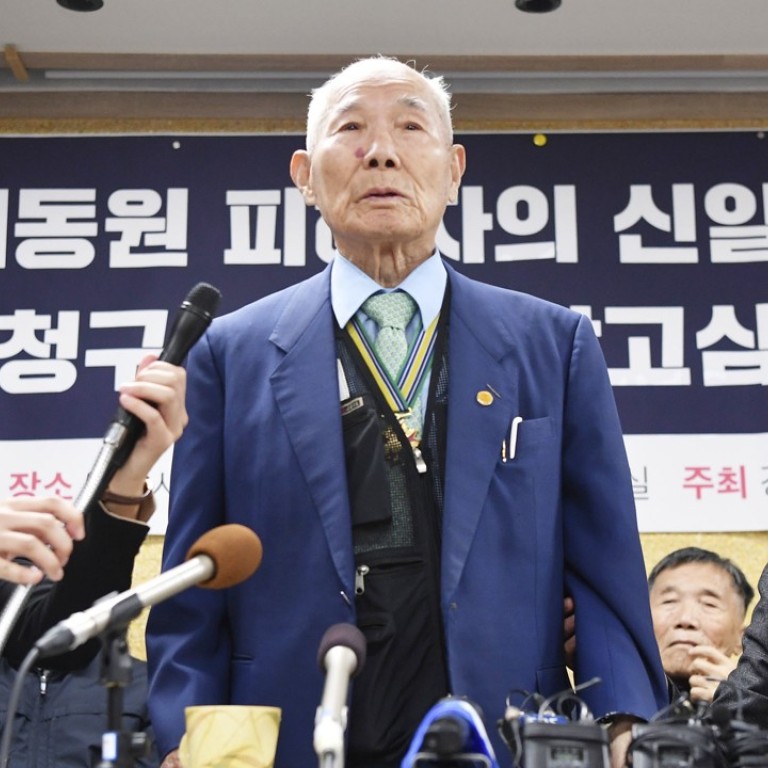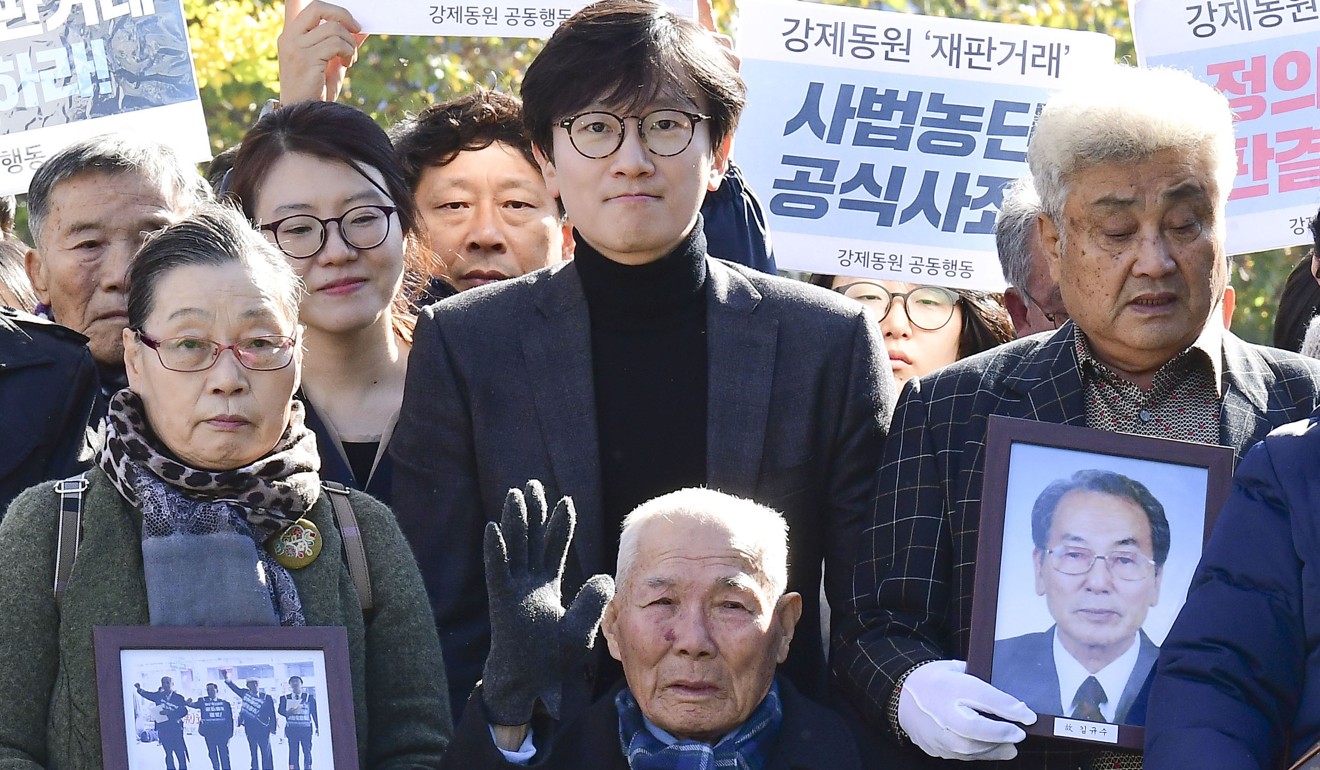
South Korean survivor of Japan’s forced labour finds himself at the centre of diplomatic row after court awards compensation
- Lee Chun-sik says he was subject to beatings by Japanese guards if they were unsatisfied with his work
- The US is working to shore up alliances in Asia in an effort to create a united front against North Korea and its nuclear programme
Nearly eight decades after he left the steel mills of Japan, Lee Chun-sik is still driven to tears by the memory of the beatings, burns and forced labour he endured.
He left his native South Korea, which was a colony of Japan from 1910 to 1945, when he was just 17 years old for the promise of being trained as an engineer. But when he arrived in Kamaishi in 1941 he was a virtual prisoner. Lee says he was subject to beatings by Japanese guards if they were unsatisfied with his work, for which he was never paid.
“I can’t think back to those days,” he said. “And trying to think of the past makes me choke up, feel sad and cry.”

Now Lee is at the centre of a developing diplomatic rift between South Korea and Japan, just as the United States is working to shore up alliances in Asia in an effort to create a united front against North Korea and its nuclear programme.
Last week South Korea’s Supreme Court ruled that Lee and three others were entitled to compensation from Nippon Steel and Sumitomo Metal Corporation of 100 million won (US$90,000) each, in a case that dragged on for nearly 14 years. Since it was first filed the three other men who sued along with Lee have died, a fact he only learned on the day of the verdict. The trip to Seoul, where the court sits, was so taxing on the 94-year-old that he was too ill to speak to journalists when he returned home.
The trauma of his time in Japan prevented him achieving his dream of becoming an engineer, he said. He held a variety of jobs after the war including working as a policeman during the US military government, and running a service station and a tour company.
The court’s judgment provided some closure to Lee, who now lives alone in the southern city of Gwangju in a cluttered one-room flat filled with faded family photos and a large stack of paper bags filled with prescriptions.
I can’t think back to those days. And trying to think of the past makes me choke up, feel sad and cry
“I feel really good and refreshed – now that the ruling has been made the compensation will be handed out,” he said. “I can’t even describe how difficult it was to wait for the ruling and I can only forget about it after receiving the compensation.”
Japan was swift to condemn the ruling in the case. The prime minister, Shinzo Abe, warned that his government could take its case all the way to the United Nations’ International Court of Justice.
“We strongly expect the South Korean government to take positive measures against the ruling,” he told a parliamentary committee, adding that Seoul must ensure that the ruling would not affect Japanese businesses with a presence in South Korea.
He condemned the Supreme Court’s decision as “unbelievable” and voiced “deep regret” that bilateral ties were being negatively affected by the case and other recent events that “run counter to efforts to build forward-looking bilateral ties”.
Japan has repeated its stance that all compensation claims stemming from the war were settled “completely and finally” by a 1965 bilateral treaty. The company also argued it was a separate entity from the firm that forced Lee and others to work, with Nippon Steel formed through mergers after the war.
The Supreme Court rejected those arguments and said the treaty did not prevent individuals from suing for the “inhumane, illegal” experience they endured. Fourteen similar suits have been filed against Japanese companies including Mitsubishi Heavy Industries and the major industrial and engineering firm Hitachi Zosen.
North Korea claims Japan wants to become ‘military giant’ and is planning ‘re-invasion’
The South Korean president, Moon Jae-in, has remained silent on the issue but the prime minister said the government “respects the judiciary’s judgment”.
The foreign ministry in Seoul said late on Tuesday that Japan’s leaders were “disregarding the root cause of the issue … and continue to make comments that rouse our public’s emotions”.
For Lee the geopolitics of his case are of little concern and he remains singularly focused on receiving his back pay, 75 years late.
“The other victims who filed the lawsuit have died but being the only survivor I can’t give up,” he said. “I went to Japan as worker at a young age and went through much suffering, and I would like to see this issue finalised within my lifetime.”

